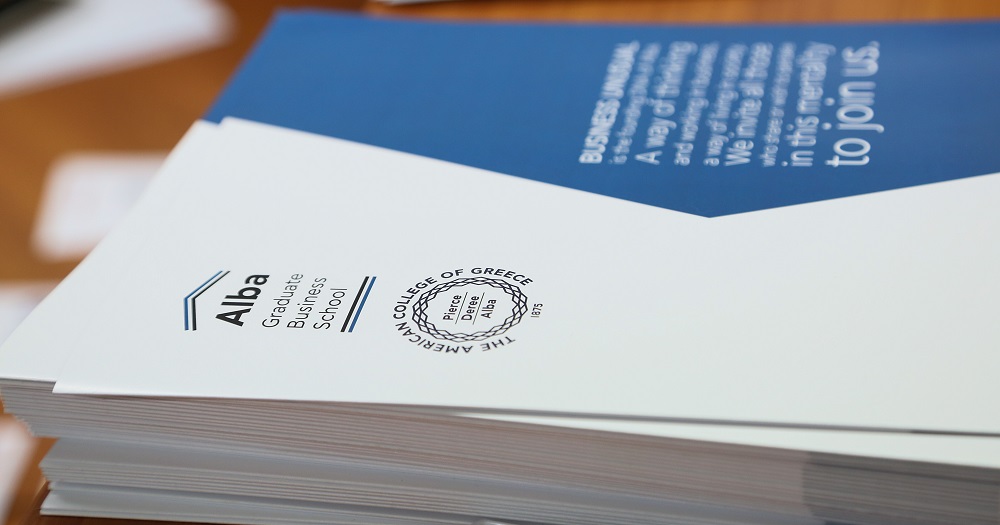A shift in mentality is needed for Greece, not an exit from the euro
By: Laopodis Nikiforos T., Associate Professor of Finance
Greece is deep into a whirl of political, social and economic woes that do not seem to fade. Problems are never solved instead they multiply and become part of every-day life. This keeps the country into a vicious circle of poverty, political instability, social degradation and underdevelopment.
The political system in Greece is fragmented, does not work and is unable to generate new ideas to move the country out of its continuing misery. We see a recycling of old and unproven ideas, people moving up and down, within and across political parties and core politicians are elevated to leader status with no clear and new direction in mind for the country. New parties were formed from party dissidents with huge differences from the stereotype doctrine of the two main parties (PASOK and New Democracy) but of little use and practicality. Most of these parties were ‘expelled’ from the parliament in the recent elections but now they are negotiating their return to their ‘mother’ party in hopes of securing reelection in the upcoming elections. The left (also composed of several new parties along with the main one, SYRIZA) has not changed its main tune in light of the country’s march to the edge and has not offered any new serious and viable solutions. Insisting on unilaterally repudiating or denouncing the memorandum is not going to cut it. The communist and other, smaller parties have never managed to advance in importance in the parliament and remained stagnant or vanished in the recent elections. However, the recent rise in extremist voices, which managed to enter the parliament in the recent elections, is alarming. This was the consequence of the impasse created by the main political parties. In addition, the repeated failures to form a coalition government were a direct result of the sharply different views of the parties’ leaders and their unwillingness to compromise of certain principles for the sake of the country. The recently circulating dilemma, euro or drachma, should not even be on the table.
What is needed is not an exit from the euro, which would definitely be catastrophic for the country in its present economic state, but a change in mentality and the generation of new, simple ideas which would move the country forward. Specifically, new ways of improving worker productivity, efficiently managing real assets, combatting widespread corruption and tax evasion, and breaking union-generating gridlocks should be actively sought. For example, worker productivity improvements can be achieved by shifting (public sector) personnel to maximize potential and output, designing a better job description and clearly spelling out worker responsibilities and rights, adopting a more effective supervision regarding possession and sharing of job knowledge, or simply by placing the right worker to the right place. These simple things, which can be done internally without imposing monetary costs on people and processes, can cut waste dramatically and improve human resource efficiency. Then, bureaucracy will diminish, things will be done faster and people will be able to move their investments or projects to jumpstart development (or growth). The insistence of troika (composed of the European Commission, the European Central Bank and the International Monetary Fund) on continuous wage, salary and pension reductions, more taxes and blind ordering of massive layoffs (although necessary, initially), all in the name of improving productivity, are not working anymore. The point has been reached where new approaches are needed to increase revenue and slash spending.
Efficient use of real assets such as buildings, land and other tangibles will surely save money and generate a return for the state. Having several state-owned buildings sit idle, paying rent for facilities to house government offices (when their own are empty) and squandering public money must now stop. The days (or decades, rather) of catering to the state’s (and political parties’) ‘clientele’, in the name of securing votes and prolonging a seat in the parliament, are over. The people spoke loud and clear in the recent elections. They want accountability, justice and real solutions. The rampant corruption of government officials and other state clients must be confronted and dealt with swiftly, decisively and effectively. The same must be done for tax evaders with appropriate punishment which should include jail time, property confiscation and demand for immediate repayment of debts (adjusted for interest and penalties). In addition, the courts must be free from political influence and judge cases fast. The courts complain of shortage of clerks and that is why judges are slow in moving cases. Well, how about shifting some public sector employees to the courts to assist with the preparation and rapid execution of cases. Finally, breaking the backbone of unions which seem to be instigating demonstrations, strikes, and riots or simply (violently, at times) obstructing workers who want to work is absolutely necessary. Such behavior turns away investments, tourism, cuts production, and increases the costs to society with no real benefits to anybody. All these only impose real costs to the economy and do not help it produce and generate income to service its debt and pay for other obligations. Union leaders and followers must understand that there are alternative ways of defending their rights and they must also be used for the sake of society as a whole. People often tend to (conveniently) forget that with rights come responsibilities.
What the country needs are fresh approaches to solve the above-mentioned eternal problems. The currently-imposed austerity measures will not work anymore because they do not promote economic development (or growth), resource efficiency or creative solutions. There are limits to continuously cutting spending and raising revenue in the same manner. If production or economic activity does not pick up, incomes and taxes will not increase, unemployment will keep increasing and depression will settle. I would like to think that Greeks, both the state and the people, should be the first to come up with innovative ways of generating additional revenue, cutting waste and proposing these to the troika when they renegotiate the memorandum. After all, it is them who (should) know best, not our European partners (or the IMF). But to be able to do that effectively and seriously, the Greek state must put its house in order and one way it can do that is for all relevant (major) political parties to come together, put aside their differences, and work for the benefit of the country. The people also must be honest with their government and assist it in achieving fiscal discipline, despite their disproportionate suffering because of austerity. It is wrong for the country to cast aside its recent pains and sacrifices since the first memorandum and push itself out of the Eurozone. But if all of us recognize that what led us here was our fault, for the most part, then we can all work together to restore the country’s credibility and worthiness of an advanced economy within the European Union. So, what is needed is change in mentality, compromise and hard work, not an exit from the euro. Understandably, all these will take time because the breaking of decades-old habits and dislocations cannot happen overnight or within a year. But it is never too late and so, change must start now.




